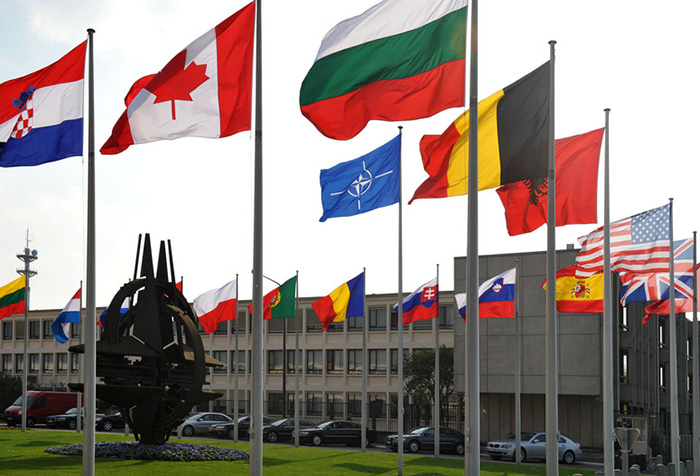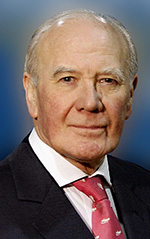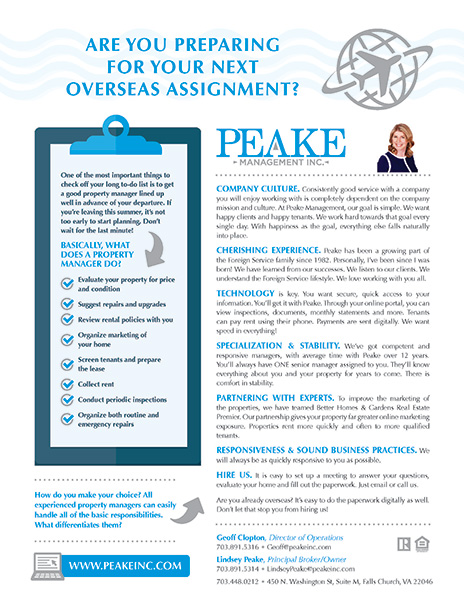The Trans-Atlantic Partnership
Both Europe and the United States have a vital stake in preserving and improving the trans-Atlantic relationship.
BY MENZIES CAMPBELL

Photo Courtesy of NATO
The guiding lights for my approach to foreign affairs have been United Kingdom membership in the European Union and the North Atlantic Treaty Organizaion, support for the United Nations and a profound belief in the trans-Atlantic relationship. These principles have been complementary and mutually reinforcing.
They have their roots in the recognition that a rules-based system provides the most effective means to preserve and promote peace and security. A rules-based system may seem perfect in conception, but less so in practice. Still, history teaches us that the alternatives are less effective.
Out of the ashes of the Second World War a new order was established, comprised of Bretton Woods, the International Monetary Fund, the United Nations, NATO and the European Union, and other international organizations. The purpose was to thwart nationalist ambition, to foster cooperation, and to achieve and sustain postwar reconciliation and reconstruction. Or, to put it another way, the goal was to identify and prevent the causes and the consequences of conflict.
Have the members of these institutions always met the obligations incumbent upon them? Of course not; because even in a perfect world, if such existed, national interests would never be entirely subordinate to supranational agreement. But the obligations and the inherent values that these institutions and relationships embraced have provided a benchmark against which citizens could measure the performance of their governments and signatories could judge their fellows.
We should not hesitate to describe these institutions and their values as liberal. Nor should we hesitate to recognize that without them our world would have been less secure.
Brexit and New Challenges
But now we face challenges of an entirely different nature, reflecting the disillusionment and even discontent many citizens feel toward governments which, both in their domestic policies and internationally, have acted in accordance with the obligations these organizations and relationships impose.
The unexpected outcome of the so-called Brexit referendum in June 2016 has resulted in the United Kingdom setting a course for leaving the European Union, of which it has been a prominent member for more than 40 years. Now less and less weight is given to the fact that the integration of Europe and Britain’s contribution to it during the last four decades prevented a recurrence of the kind of conflicts that scarred the continent in the past.
We face challenges of an entirely different nature, reflecting the disillusionment and even discontent many citizens feel toward governments.
Indeed, the decision of the British people has raised the possibility that the very existence of the European Union itself may be at risk, thanks to the encouragement it has afforded to parties of the right in France, Germany and Holland. In the forthcoming elections in all three countries, these parties will press even harder for withdrawal, spurred on by the British example.
It is presumptuous to offer an opinion on the circumstances which led to Donald Trump’s election to the presidency of the United States, and it is also dangerous to invoke parallels. But it can reasonably be said that there are certain similarities in the public mood in both the United Kingdom and United States. Not the least of these is the rejection of former Secretary of State Hillary Clinton, whose qualifications and experience became a hindrance rather than an advantage in the eyes of many American voters because they identified her with what they regarded as a discredited establishment.
Against this background, it is necessary to consider what the consequences of these events are for a rules-based system and for the trans-Atlantic relationship, particularly as it affects the United States and United Kingdom. This task is not made any easier by the fact that at the time of writing there is no clear view of the foreign policy positions which the United States may take under its new president.
How Special a Relationship?
We British like to think that we enjoy a unique “special relationship” with the United States. In America that relationship is often thought to be rather less exclusive than the British would prefer, even when it is described as essential. But however it is characterized, there is no doubt that both countries look with favor on their closeness. Practical illustrations of this are to be found in the sharing of intelligence of the highest possible quality and close cooperation over nuclear weapons. We are each other’s first ally of choice.
History shows us that when there is a warm personal relationship between a president and a prime minister, the bilateral relationship is closest. Winston Churchill and Franklin Delano Roosevelt, Harold Macmillan and John F. Kennedy, Margaret Thatcher and Ronald Reagan, and George W. Bush and Tony Blair are all testimony to that—although many U.K. citizens thought the last of those pairings proved extremely disadvantageous when it led to their joint policy of military action against Iraq’s Saddam Hussein.
The bilateral relationship has not always been perfect. British Prime Minister Harold Wilson refused to send any troops to support the United States in Vietnam despite the request by President Lyndon Johnson for just one company of the Black Watch and its pipe band. Prime Minister Thatcher's exchanges with President Reagan when the United States unilaterally and without warning invaded Grenada in 1983 were incendiary.
As U.S. foreign policy emerges under President Trump, London and Brussels should take every opportunity to encourage him to recognize the need to maintain the United States’ commitment to a rules-based system and to a trans-Atlantic relationship in which Britain can play a prominent and effective role. At a time when there is more fragile uncertainty internationally than at any time since 1989 when the Berlin Wall came down, NATO and that relationship have never been more important on both sides of the Atlantic.
NATO is the essential glue in the trans-Atlantic alliance. Without wholehearted commitment by all of its members, the alliance would be weakened severely, possibly fatally.
Pres. Trump has a point when he says that the European members of NATO have not contributed sufficiently to the cost of their own defense. The target of 2 percent of annual gross domestic product (GDP), which the 2014 NATO summit in Wales set, is a bare minimum; yet three years on only a handful of NATO members have reached it. Indeed, some argue that even the countries which have reached that level have done so by virtue of creative accounting. In the case of the United Kingdom, London has met the goal, but many commentators warn that 2 percent of GDP is inadequate to meet both the country’s domestic and international responsibilities.
The credibility of the alliance depends on its capability. And capability depends not only on how much is spent, but how it is spent. European members can make a much more effective contribution if they embrace the principles of force specialization, common procurement and interoperability. Proposals for a so-called European army are not credible and would constitute unnecessary duplication.
NATO Is Not Obsolete
The judgment that NATO is obsolete does not reflect reality. When Russia deploys nuclear-capable missiles to Kaliningrad, it is not only the Baltic states that should feel concerned, but the whole of Europe. When Russian generals are reported to have endorsed the use of battlefield nuclear weapons, every NATO member should be concerned. Such developments are eerily reminiscent of the Cold War. They give rise to the risk of accident, misjudgment or provocation, real or imagined.
The relationship between London and Washington is the central pillar of the principles of conventional and nuclear deterrence set out in NATO’s strategic concept, and reaffirmed at the 2016 NATO summit in Warsaw.
The obligations contained in Article 5 of the North Atlantic Treaty are only credible if the United States and the United Kingdom stand ready to fulfill them. Those Americans who question the strength of that obligation should recall that the only occasion on which it has been invoked was in 2001, when terrorists struck the Twin Towers and the Pentagon.
Equally, it is not credible to contemplate offering a sphere of influence in Europe to Russia. To do so would only assist President Vladimir Putin in achieving his twin objectives of undermining the European Union and destabilizing NATO.
NATO is the essential glue in the trans-Atlantic alliance. Without wholehearted commitment by all of its members, the alliance would be weakened severely, possibly fatally. It is optimistic, to say the least, to believe that belligerence in the Kremlin will be replaced by benevolence. History tells us that those who enjoy spheres of influence are rarely satisfied by what they control. Characteristically, they look to expand.
Pres. Trump has a point when he says that the European members of NATO have not contributed sufficiently to the cost of their own defense.
Diminishing the American commitment to Europe can only further encourage Putin. It is said that a deal can be struck with him, and that better relations can be achieved. This is both pragmatic and laudable. But what would such a deal involve? Do not such dealings involve concessions on both sides? What would Putin be prepared to offer in such a bargain, and what could he be offered in return?
Buoyed by his diplomatic and military success in the Middle East, why would he be in any mood to make concessions? Who’s to say he would not simply bank any concession made to him without reciprocating? And even if such a deal were achieved, the continued maintenance of the deterrence which NATO provides would be a necessary safeguard.
Protecting U.S. National Interests
It is easy to see that Europe has a real stake in preserving the trans-Atlantic relationship. But what of the United States? A stable and secure Europe making a proper contribution to its own defense is the best means of protecting American interests on the continent. U.S. investment and trading interests are served by stability. There is a close and productive relationship between the United States and the two European nuclear-weapon states in NATO, the United Kingdom and France.
In Europe, Washington would continue to find a partner which upholds the rule of law, protects freedom of speech and assembly, and is based on democratic values. What better partner could there be in an increasingly uncertain world? But beware. There are already those in Europe and the United Kingdom who argue that the language of Pres. Trump’s campaign must be taken seriously and is likely to emerge as established policy. They further assert that Europe can no longer look to the United States with the same certainty as before; and that a Europe on the one hand destabilized by the United Kingdom’s decision to withdraw from the European Union and, on the other, by a diminished commitment from Washington would have to learn to go it alone.
That this outcome is even thought possible makes it imperative that those on both sides of the Atlantic who understand and value the relationship actively resist any moves in that direction. Yes, the United States is entitled to require the European members of NATO to meet their commitment to spending at least 2 percent of their GDP on defense. In return, European members are entitled to expect the Trump administration to curtail its reliance on conducting policy via the informality of social media. Foreign relations in government need to be formulated and conducted with deliberation and clarity, following consultations with allies.
British Prime Minister Theresa May has an obligation and an opportunity to be an honest broker and candid friend on both sides of the Atlantic. She can bring home to the Europeans that their relationship with Washington must become less one-sided, and she can help the Trump administration see that maintenance of that relationship is essential to advancing their own interests.
Read More...
- “A Little Advice to Europe – From your Best Friend,” Foreign Policy, March 2017
- “How Donald Trump Might Save the EU,” The New York Times, February 2017
- “The U.S. Relationship with Europe Hinges on Diplomacy,” The Hill, March 2017
- EU Chief Juncker Warns Against U.S.-EU Trade War,” Reuters, March 2017
- From the FSJ Archives, “The USRO and American Foreign Policy,” FSJ February 1955










